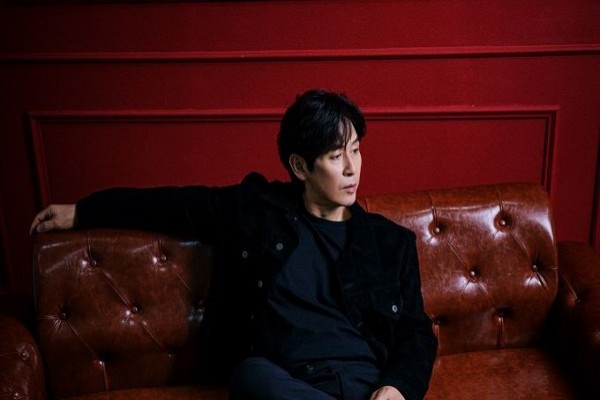130, Suyeonggangbyeon-daero,
Haeundae-gu, Busan, Republic of Korea,
48058
KANG Hyoung-chul of SWING KIDS
May 09, 2018
- Writerby LEE Hwa-jung
- View2734
Defining History through Dance, A Reading of the Korean War Ideologies

Director KANG Hyoung-chul has been releasing films every three years, from Scandal Makers in 2008, Sunny in 2011, to Tazza-The Hidden Card in 2014. Although his filmography is diverse in genres and themes, his interest for music and dance was always an omnipresent component of his stories. With Swing Kids, the director took a chance to really explore this inclination of his. Set in 1951 at the Geoje Prisoner Of War (POW) Camp, KANG Hyoung-chul's new film will tell the story of RO Gi-su (DOH Kyung-soo), a young North Korean soldier who dreams of becoming a tap dancer, and through him, will show us the truth behind the illness of "ideology" from which our societies suffer.
Your film depicts the story of an amateur dance company named Swing Kids, in the midst of the Korean War. What drove you to this story?
I originally wanted to make a film about disco, but it didn’t really work out. I was also very drawn to the conflicts between North and South Korea and that's when someone introduced me to an original musical called Ro Gi-su. I thought I’d be able to combine those two stories I wanted to tell in one movie. The dancing was there, the relationship between North and South Korea as well. The captives of the Geoje POW Camp wage the same ideological war. Through this movie, I wanted to ask why, in the name of an ideology, our country must live in separation, and what causes naive people to become villainous.
In Scandal Makers and Sunny, comedy was your main tool to move your audiences but your approach to drama is also very unique. I am very curious to see how such a heavy subject like the Korean War can be incorporated into your project.
The Korean war was indeed a huge tragedy. Many wanted to express themselves through dance during those dark times but they weren’t able to. The character of RO Gi-su falls in love with tap dancing, but when caught dancing, he gets accused of being a communist. Dancing and singing are an inherent instinct and right of humans. How could an ideology be so strong that it would ask us to suppress our instincts? In this film, I wanted to portray the “ideology” as the ultimate villain. The movie revolves around the war, but its main topic remains dancing. Looking at this period of history through the prism of dance, you’ll be able to acknowledge the comedy within the tragedy. I believe dance will stand out as the most instinctive form of entertainment.

Tap dancing must have been important for the shooting.
I drew the moves one by one in the storyboard, but the camera technique wasn’t as important as how well the actors executed the moves. We practiced it for a year. They weren’t very good at first but have now mastered it to the point of being able to participate in talent shows. (laughs)
You had to reenact the Korean War for this movie and worked with D.O.P KIM Jee-yong whose filmography includes The Age of Shadows (2016) and The Fortress (2017) for this purpose. As he is an experienced cinematographer for period films, we’re looking forward to this collaboration.
I was aiming at reproducing the style of old color photographs. While working on the colorimetry, KIM Jee-yong spent a lot of time trying to find the right color balance and tone. I was already a great admirer of his work, but I think I’ve now found a lifetime production partner. I’ve never entrusted that much to a Director of Photography like I did to KIM Jee-yong this time. I was always looking forward to seeing what angle he would choose next.
DOH Kyung-soo, who plays RO Gi-su, is an idol star. That must have helped for the dancing parts. Did you always have him in mind for this role?
I actually did not know he was the vocalist from EXO and was oblivious at that time (laughs). Anyway, tap dancing is slightly different from other types of dance but in spite of that, he was physically fit to learn and picked it up pretty fast. He didn’t even have to use a stand-in and was able to execute even the most difficult moves himself.
How did you choreograph the dance parts?
The actors not only had to tap dance well, they also had to act well. I auditioned many international actors through Skype, and many of them actually appear in the film. Out of them all, Jared Grimes got the role of Jackson, an African-American sergeant who creates Swing Kids. He’s quite famous in Broadway and a great dancer but he didn’t have much experience on camera, which made me worry at first. Prior to the shoot, I gave him many explanations for the film and we even exchanged letters. Now, even Korean food seems to be to his liking. (laughs)
You’re quite familiar with showcasing a new side of your actors. I think actress PARK Hye-soo is a good example in this film.
It was important for the female lead to have an important role and I actually modeled her character after my grandmother. I looked into my grandmother’s childhood days with the desire to give her a second youth. Back in those days, Korean women had to go through many hardships, some being widowed and having to be the breadwinners in the family, putting their dreams aside. YANG Pan-rae, the character played by PARK Hye-soo, is the symbol of that humanity.














